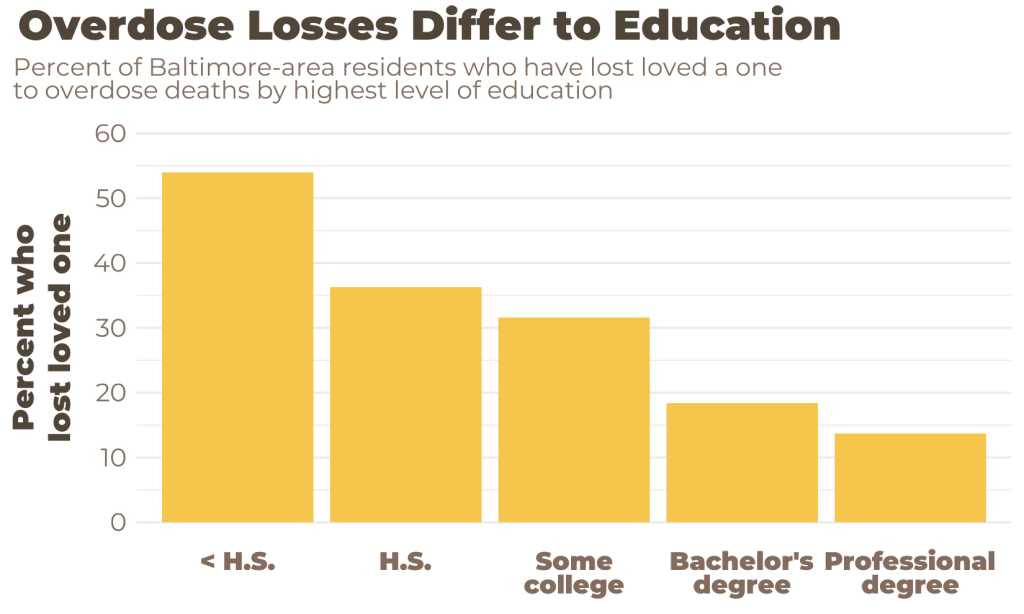
September 17, 2024
More than half of Baltimore area adults who have not graduated from high school know someone who has died from a drug overdose—far more than any other socioeconomic group in the region. Our new report, based on data from the 2023 Baltimore Area Survey, offers deeper understanding of the families touched by Baltimore’s growing drug addiction epidemic. Findings show the poorest and least educated are the most affected by fatal overdoses.
Our report examines demographic and socioeconomic characteristics of Baltimore Area Survey respondents who reported knowing at least one person addicted to illegal substances.
Co-designed by Johns Hopkins researchers in collaboration with community leaders, the survey of 1,352 city and county residents focused on how people experience living in the area. We found that 40% of respondents have known someone addicted to drugs and more than 25% have lost someone to a drug-related death.
Further analysis found deep socioeconomic divides among those who have lost family and friends to overdoses. Americans who had low incomes and did not finish high school are more at risk of overdose deaths, and Baltimore is no different.

Findings include:
- Four out of 10 people with annual household incomes under $30,000 have lost loved ones to drug overdoses. Those same households are more than five times as likely to know multiple people addicted to drugs than are households that earn over $110,000 annually.
- Respondents without high school diplomas are nearly four times more likely to have had someone close die of a drug overdose than are respondents with master’s or doctoral degrees and were six times more likely to know multiple people addicted to drugs.
- The percentages of Black and white residents familiar with fatal overdose victims are roughly the same, though white residents are less likely than Black residents to report knowing multiple people struggling with addiction.

